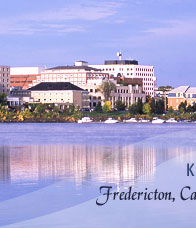Compared to the 626 candidates invited from June through August, the province issued a total of just 48 invitations from March through May, according to figures posted on the province's website.
In the six months leading up to March, the province was averaging 141 invitations per month.
New immigrant investors won't arrive for a year
Among the new immigrants the province is offering to sponsor are 77 potential immigrant investors who would be required to operate a business on P.E.I. Aiken said all of those applicants are currently living overseas, but that it would be months before their applications to enter the country are processed by the federal government.
"So we may not actually see an applicant for upwards to 12 months who we would invite in the month of August," he said.
While Canada has closed its borders to many international travellers, there are exceptions which allow provincial nominees to enter the country if they have a work permit and are able to self-isolate for 14 days.
Aiken said since the start of the pandemic, approximately 75 people have arrived on P.E.I. from overseas to become permanent residents through the PNP, mostly essential workers employed in health care or the trucking industry.
Self-isolation key to public safety
P.E.I.'s Chief Public Health Officer Dr. Heather Morrison has repeatedly warned the primary risk of introducing COVID-19 to the Island comes from those entering from outside the Atlantic bubble. Government says all 57 cases recorded on the Island so far have been travel-related. As of Tuesday, government reported only one active case of the disease in the province.
But Morrison has also often referred to the requirement that those coming to P.E.I. from outside the Atlantic bubble self-isolate for 14 days, crediting that requirement for the lack of community spread of COVID-19 in the province.
When asked about the potential risks of resuming immigration programs during the pandemic, Morrison said those decisions "are almost made at a federal level.… It's really, from my perspective, trying to figure out once those decisions are made, how we can do it safely."
The P.E.I. government administers its own provincial nominee program, under the oversight and within parameters approved by the federal government.
"As we ease back and learn to live with COVID and those [immigration] streams begin to open up a little bit more broadly in the future, the big question would be just around making sure that we have that self-isolation in place," said Premier Dennis King.
"As a province we need immigration. We depend on growing our population through many streams, including immigration," King said. "And even though we're in a worldwide health pandemic, that has to remain a focus for the long term, and it will."
CBC news





